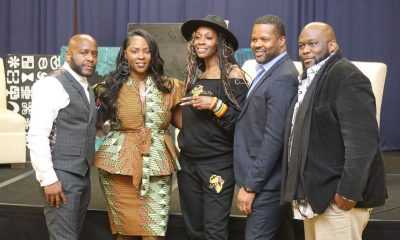BY MICHAEL THOMAS
After over 40 years of upholding a legacy of integrity and excellence, accusations and allegations of mismanagement of public funds and conflict of interest have raised its ugly head at the Black Business and Professional Association (BBPA).
As I investigated the meat of information surrounding this case it is easy to see why many buzzards are circling this prey. One of the main allegations I have noticed is that BBPA management awarded contracts to companies controlled by the former President and CEO, Nadine Spencer, without appropriate due diligence. Again, if this turns out to be true, an organization that has been in business for four decades must have seen this coming.
If the rules of receiving the funds, or government grants say that you must put out tenders to hire workers, then by all means do so. We have to remember that bad news travels twice the speed of good news.
There is more; on November 5th, 2021, the BBPA’s President at the time, Nadine Spencer became the CEO where she was allegedly paid in the range of $250,000. This was used to make the comparison that a bigger organization was thriftier with their money than BBPA, here is how. As an example, the Executive Director of Tropicana Community Services, a much larger non-profit organization, earned a salary of $163,671 in 2023.
My job in this article is not to throw BBPA under the morality bus, but to shed a bit of light on how as a people we must realize that all eyes are on us. Something I quickly spot is how many mainstream media took the opportunity to jump at this alleged scandal in BBPA, yet, for over four years now Canada has been led off the cliff, and because these same mainstream media folks were paid and funded, they looked the other way.
Do I condone the misuse of public funds? Hell no! If these allegations are proven to be true, should BBPA be held accountable? Hell yes!
That said, I went to BBPA’s website to have a bird’s eye view of what this organization is all about, and after reading I must say I was impressed.
I am hoping that BBPA realizes that to whom much is given, much is required. An organization that has kept such a sterling reputation over the last four decades need not look only in its rearview mirror, but in blind spots as well.
Misappropriation of funds is no laughing matter regardless of how big or small an organization is, nor is conflict of interest. These are tantamount to having blood stains on white garments. If proven there needs to be public apologies, and most importantly “a complete cleaning of the house.”
The Boards of Directors of the BBPA released a statement on Friday, April 26th, 2024, in response to the call for their resignation in the midst of the allegations of financial mismanagement. The statement was addressed to BBPA members/supporters. It states, “We want you to know that we have been listening to the concerns that have recently been raised. The BBPA has hired independent professionals to undertake the appropriate reviews. The current BBPA Board has and continues to proactively take steps to strengthen governance and compliance practices. We are all dedicated to learning, improving, and continuing to work together through this process. We, as Directors, also want you to know that you can reach out to us any time for a conversation.”
Now in the case of Mr. Harry Jerome’s daughter, when one engages in asking an organization that has upheld her father’s name for four decades to quit using the name. I would like to think that this individual has solid proof of wrongdoing, or if proven wrong is ready to apologize as well, but with all these wolves circling the wagon. I understand her plight.
Starting from a small gathering that honored just six Black Canadian athletes who excelled at that year’s Commonwealth Games in 1983, to an organization that built an endowment fund of close to $600,000, and in the last 24 years the fund has granted over 650 scholarships totaling close to 2.5 million dollars, BBPA has a lot to be proud of.
However, if these allegations are found to be false, I am hoping that the accusing parties will do the right thing and apologize. On the other hand, if BBPA is found to be in the wrong, then the organization should be wise enough to rock the boat and throw those found guilty of tarnishing BBPA’s and Mr. Harry Jerome’s good reputation completely overboard.
According to news sources, BBPA has categorically denied all allegations. Whichever way this cookie crumbles, BBPA, your decision should and must make your people, and the late sprinter Mr. Harry Jerome’s name and family proud.


 Community News1 week ago
Community News1 week ago
 Community News1 week ago
Community News1 week ago
 Community News1 week ago
Community News1 week ago
 Community News1 week ago
Community News1 week ago
 Community News1 week ago
Community News1 week ago
 Community News1 week ago
Community News1 week ago
 Community News2 weeks ago
Community News2 weeks ago
 Community News1 week ago
Community News1 week ago
























